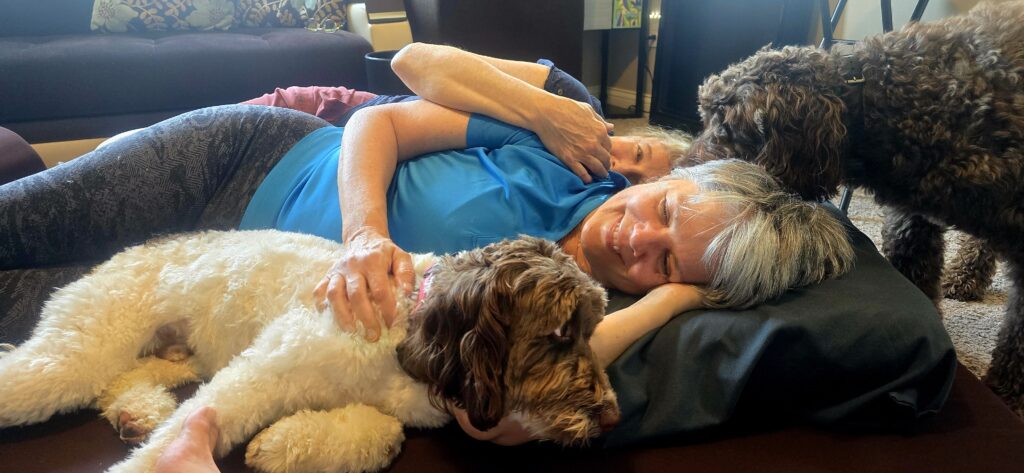FREE phone consultations! Call 216-544-9472
FREE phone consultations! Call 216-544-9472


What are the Benefits of Working with Dogs
Emotional Support and Comfort
Dogs are known for their unconditional love and non-judgmental presence, which can provide immense comfort to individuals experiencing stress, anxiety, depression, or other mental health issues. The presence of a dog can create a calming environment, helping clients feel more at ease during therapy sessions.
Therapeutic Alliance
The bond between a practitioner and client, known as the therapeutic alliance, is crucial for effective transformation. Dogs can facilitate this bond by serving as a bridge, making clients feel more connected and open to their practitioner. The presence of a friendly dog can help clients feel safer and more willing to share their thoughts and feelings.
Reducing Anxiety and Stress
Interacting with dogs has been shown to lower levels of cortisol, the stress hormone, and increase levels of oxytocin, the hormone associated with bonding and relaxation. This physiological effect can help clients manage anxiety and stress more effectively.
Emotional Regulation
Interacting with dogs can help clients learn and practice emotional regulation. The calming presence of a dog can help clients develop strategies to manage their emotions, which can be especially helpful for individuals with conditions such as PTSD or borderline personality disorder.
Nonverbal Communication
Dogs are highly attuned to nonverbal cues and can respond to the emotional states of clients. This nonverbal communication can be particularly beneficial for clients who have difficulty expressing their emotions verbally, providing an alternative means of connection and support.

Gracie Morgan
Portuguese Water Dog

Zander Warren
Portidoodle



David is a Core Energetics and Reiki Practitioner, as well as, Life Coach that works with clients to identify blocks and negative patterns of behavior that prohibit them from living their life to it’s fullest.
Energetic Awakenings
North Ridgeville / Avon, OH